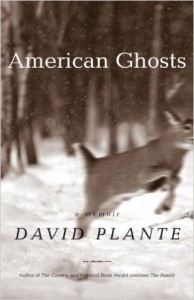 American Ghosts
American Ghosts
by David Plante
Beacon Press. 288 pages, $24.
I SAT DOWN to read American Ghosts with high expectations. Here, after all, is the personal story of David Plante, author of fourteen books, including the famed Francoeur Trilogy, The Ghost of Henry James, The Catholic, Difficult Women, and The Family. Here is Plante’s story about growing up in a small Rhode Island French Canadian district, an area so Canadian in manners and mores that I had a hard time believing it was Yankee New England. The book begins with Plante as a toddler entranced by the French nuns in their huge black veils. It then details his immersion into the ways of his Indian grandmother, a woman steeped in the customs and superstitions of her Crau ancestors. It is this relatively isolated and protected childhood that would lead him into the world of his own imagination and mystical longings. And it’s from this point that the author finds his beginnings as an artist.






